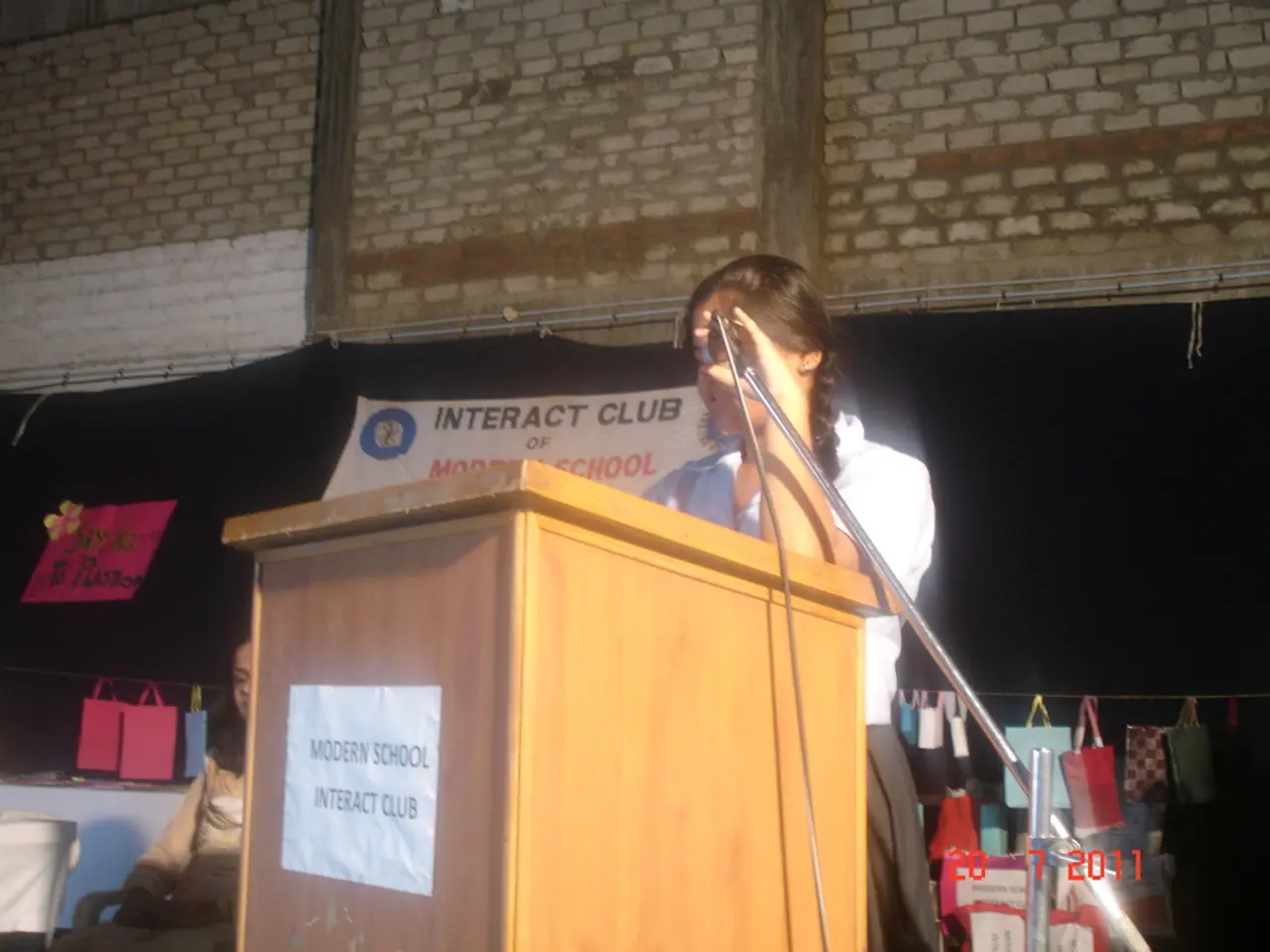"The upcoming 48 to 72 hours hold significant importance"
In the heart of Alaska, the world watched as President Trump and Russian President Putin met for a historic summit. The event, marked by a red carpet and a handshake, was significant, but some experts argue that the next 48 to 72 hours following the summit are crucial.
Nicole Deitelhoff, a conflict researcher, emphasises the importance of these hours, particularly concerning the sanctions threats Trump made against Russia before the summit and Zelensky's visit to Washington next Monday.
The talks between the two leaders did not result in any progress, but the absence of a deal does not necessarily mean the meeting was pointless. The summit may have been more about PR than substance, as suggested by the press conference without questions.
Trump's foreign policy behaviour seems to be motivated by a hope for the Nobel Peace Prize, and he is willing to do a lot for it. However, the hope for the prestigious award has not increased through the Alaska Summit.
Putin extended an invitation to Trump for a future meeting in Moscow, a gesture that Trump appears to have welcomed. The Russian leader also stated that there would have been no war if Trump had been president in 2022, a form of flattery that Trump reacted positively to.
However, the question of whether it was a mistake to meet with Putin, who is accused by the International Criminal Court as a war criminal, was raised. The fact that Putin was given a formal meeting despite his status as a war criminal was a point of contention for some observers.
The Europeans gave Trump five points for his meeting with Putin, one of which was that the starting point for any negotiations should be a ceasefire. This position is based on the need to create a situation for Ukraine where it even has the possibility to negotiate, rather than just fighting for its survival.
The talks between the leaders may have been a form of probing each other's red lines, a strategy known as BATNA (best alternative to a negotiated agreement). This strategy allows parties to understand each other's limits and flexibilities, providing valuable leverage in subsequent formal negotiations.
The summit was unusual as it happened in public, instead of behind closed doors in preliminary talks. This approach, while offering transparency, lacks the depth and detailed negotiation that can be achieved in private, informal talks. Summits often lack the flexibility and confidentiality, enabling parties to explore various options without the pressure of immediate public scrutiny.
Despite these challenges, the summit could at least be a positive sign that the USA will continue to be engaged and that there will also be further negotiation steps as a result. The hope for the Nobel Peace Prize could serve as a driving force for continued diplomatic efforts.
Russian Foreign Minister Lavrov added an interesting twist to the summit by appearing with a pullover that had CCCP written on it, the Russian abbreviation for the Soviet Union, whose former territory Putin's regime more or less openly claims for Russia. This gesture, while symbolic, serves as a reminder of the complex and historical relationship between the two nations.
As the world waits for the next moves, the Alaska Summit serves as a testament to the intricate dance of diplomacy on the world stage. The next few days will undoubtedly reveal more about the future of US-Russia relations.
The European Union, being actively involved in global politics and general news, has also weighed in on the significance of the next 48 to 72 hours following the Alaska Summit. Nicole Deitelhoff, a conflict researcher, proposes that these critical hours could influence the future of negotiations between the United States and Russia, particularly regarding sanctions and Ukraine.
The position of the European Union emphasizes the need for a ceasefire in Ukraine, as it would furnish Ukraine with the opportunity to negotiate beyond simply fighting for its survival. This stance is reminiscent of a BATNA strategy, where parties aim to understand each other's limits and flexibilities for leverage in formal negotiations.








